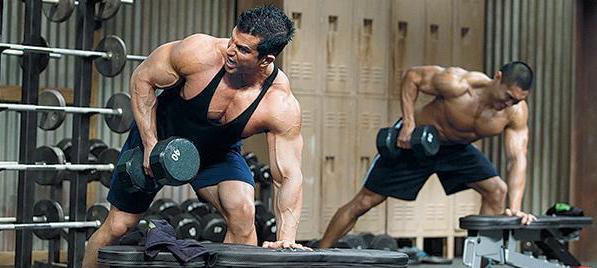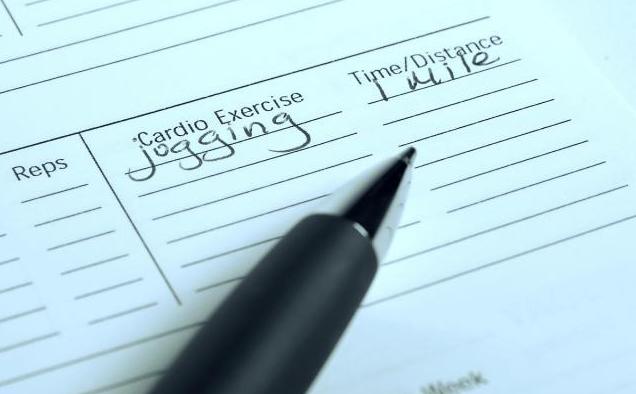We all want to know what the secret to building muscle is. Although many people are misguided, there will be some unmistakable secret training style and unique training program, or even an untold secret. For example: the magic protein powder or muscle drugs. Not everyone's talent can make you a bodybuilder, but the truth is, muscle training, just need to follow the ten simple fitness training methods, whether you are a professional athlete or an enthusiast, can make muscle training maximum effect, this is also the words of those professional bodybuilders do not pass on the "secret", the following I I will explain them one by one.

Change the way you work out
Your body will often get used to any fitness training you do. The better your training base is, the faster it will adapt. Therefore, in order to achieve better results in muscle building, you need to change your workout routine. The best way to change your workout routine is to cycle through the workouts you use in your routine and use orderly, logical sets, repetitions and variations of rest periods between workouts, meaning that for the same part of your workout you can have a training plan with 2-3 combinations of training movements, changing these regularly. By changing these correctly, you can get better results in terms of muscle mass and strength.

Keep your workouts short
While you would think that a marathon 3 hour workout would work best in order to gain muscle, this is far from the truth. after 45 minutes, your testosterone levels start to drop and cortisol levels start to rise. Why is this bad? Because in short, testosterone builds muscle and burns fat, while cortisol destroys muscle and stores fat. So when your cortisol rises and your testosterone falls, you are trying to achieve the exact opposite effect. To better understand this, learn more about cortisol (we'll write a special article on cortisol later to explain it in more detail).
Some of you may say that many bodybuilding gods will train 2-3 times a day. But please note that they don't train for too long at a time, and at the same time there is a certain amount of time between the 2-3 practices a day to allow the body to recover. In addition professional bodybuilders such an arrangement will also have to take into account their own situation, or the need to prepare for competition.

Using both high volume and high intensity training
For years, there has been a huge debate on the internet about which training method works best. In reality, a combination of both types of training will give you the best gains. To get the best out of your muscles, you need to alternate between high-volume and high-intensity training. High-volume training will push your body to its limits, forcing your muscles to fill with blood and hypertrophy, while high-intensity (high weight, low reps) will allow your body to recover quickly while achieving new muscle mass and strength gains.

Adjust your rest time between sets
Changing your rest time between sets is another way you can motivate your body to adapt. If you take 2-3 minutes of rest between sets and then turn it into just 1 minute of rest, you will see new growth from this change even though your strength levels will suffer at first. Again, an orderly and planned variation during rest, consistent with a proper reps and sets adjustment program, will provide you with the best muscle mass and strength gains.

With barbells or dumbbells
If your routine is primarily fixed equipment, then don't expect much growth. Your body is designed to move in a three-dimensional, multi-angle form, so if you just train with machine fixed equipment, there are many muscle groups that stabilize the body that will never be activated because the fixed equipment helps you stabilize the body and isolate local muscles. The end result is that only local muscles are stimulated, but it does little to help overall growth! However, if your routine consists of free weight multi-joint exercises such as dumbbells and barbells, your body will need to engage all possible muscle fibers to balance and control the body. In addition, if you are doing exercises such as squats, lunges, push-ups and pull-ups, then you are working as many muscle fibers as possible because with such free weight and compound movement training, your body will need to activate a large number of muscles. Therefore, although these exercises are the most challenging, they are also the most productive. For example, a set of deep squats can lead to more growth than 5-7 sets of leg extensions.

Minimize aerobic exercise
Regular aerobic exercise is good for cardiovascular benefits, but if our goal is to focus on building muscle and want better muscle growth, then aerobic exercise should be minimized to 20-30 minutes 3-4 times per week. For example, recumbent biking, walking, or elliptical, keeping your heart rate between 130-150. Too much cardio will begin to impair your ability to gain muscle mass because your body will begin to utilize and deplete nutrients that are not being used for muscle growth, but are supporting additional cardio.

Focus on perfect body shape and contracting muscles
This sounds simple enough, but how many people can do it? Remember, this is fitness, so you need to focus on perfect movement execution so that your muscles (not tendons or joints) can do the job. Never use greater weight at the expense of movement integrity! Remember also that because muscle stimulation is paramount, you need to contract your muscles as you complete the movement. Moving the weight around at two points is not enough. Really focus on squeezing and contracting the muscles being trained. Even if you do this, you will not be able to use much weight, but I assure you that the results will be well worth it.

Your body type will determine the frequency of your training
This is a topic that is rarely discussed. In order to achieve the best results, you need to adapt your training frequency to your body. For example, a person with a naturally slow metabolism can train 5-6 days a week. However, someone who is naturally lean and bony with a high metabolism would do best to work out 3-4 times a week.

Choose a training program that you can stick to
This is one of those "secrets" that sounds so obvious but is repeatedly ignored. While some plans look great on paper, if you can't stick to them because of other schedules like family and work, you need to choose a different schedule. If all you know you can do is strength training 3-4 times a week, then follow that frequency. It doesn't make sense to try to stick to 5-6 days a week if you always miss 1-2 times a week. Ultimately, this will only lead to frustration and fewer gains. So be sure to choose a program that you know you can stick to, because consistency in your program is the key to major muscle growth!

Log your program and track your progress
Keeping a training log is a great way to do this! Keeping track of your workouts is not only great for accountability, planning and motivation, but it also helps you see where you are now and where you have been in the past. Imagine if you followed a plan to stay in the best shape of your life, and then you didn't remember how you did it. Can you imagine how you would feel if for some reason you lost your ideal body shape and then didn't know how to get it back? In addition, a training log makes it easy to see your progress. Are you getting stronger? Are you losing weight? All of these items are easy to see when you keep a training log. Finally, if your progress is not moving forward, a log helps you make adjustments to your program. If you keep detailed records of your workouts and nutrition plan, if you are losing strength and notice in your training log that you are always missing a meal or two a day, then you know the solution to the problem.

Popular Articles
-
Nutritious and Healthy Rice Cereal with Low Fat in Spring

-
 Fitness Equipment | How to choose a suitable for their own yoga mat?
Fitness Equipment | How to choose a suitable for their own yoga mat?Nov 23, 2024
-
 What are the high style and practical home appliances?
What are the high style and practical home appliances?Nov 23, 2024
-
 Want a flatter belly? Fat loss before abdominal abuse
Want a flatter belly? Fat loss before abdominal abuseNov 23, 2024
-

Photos
The world's most beautiful big cities at nightNov 23, 2024
-
 Health Science Popularization of Clinicians | Hazards of Low Blood Pressure
Health Science Popularization of Clinicians | Hazards of Low Blood PressureNov 23, 2024







Comments
0